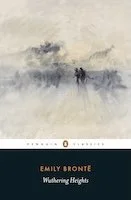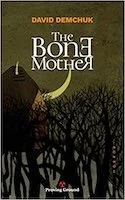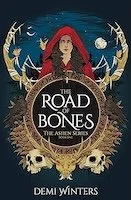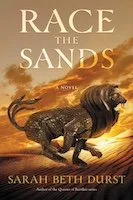Review: Wuthering Heights
/5 stars. Wuthering Heights is having a moment. And I am jumping in, face first. One of my reading goals for 2026, after all, is to read more classics, and with all the current *waves arms* discourse, it seemed like the perfect time to give it a try. Dusty carpets, watery porridge, locks of hair and all.
The Moors: has there ever been a more sighed-about gothic setting? When Catherine Earnshaw's father comes home from a trip with a wild young boy instead of promised gifts, he alters the fates of his estate, his children, and his children's children forever. Heathcliff, outsider though he is, bonds with the young Catherine even as he endures abuse, prejudice, and punishment from her family. After Catherine, due to circumstances not entirely beyond her control, marries another, Heathcliff sets himself upon a course of profound, complete revenge.
It's an extraordinary book. It's extremely readable. It's oddly engrossing. It's fascinatingly-written on a sentence level (those speeches! the literal blocks of dialogue!). Idk if this makes any sense, but the words felt good to my brain. Putting this book down felt like a record scratch, or a velcro rip, as I reluctantly blinked my way back into life. These characters - almost to my dismay - wormed their way into my brain to the point where I would think about them on dog walks, in the car, or running errands.
It's so gossipy - it's almost like watching a reality tv show, but also more like a soap opera, maybe? The pain of these insufferable people is on brutal display. They all prickle with self-righteousness and resentment and judgement. They are openly mean and vindictive. They are childish and selfish and cruel. There is not a single one who can regulate their emotions properly - it is a guidebook to unhealthy relationships, to fighting unfairly, to making impossible situations more impossible for themselves and for others. I don't quite know how to explain why this becomes so entertaining through the framework of the story, because honestly, it's depressing.
And no, unfortunately I did not feel “primal, sexual” while reading this book - I wish I had, that sounds awesome - mostly I just felt a little perplexed and captivated by the sheer strangeness of what I was reading. This book is about death, not sex. It's about death - or maybe, life after death? - and racism and generational trauma and isolationism and pain and unreliable narrators and yeah, now I'm just saying what everybody else says, because they are all correct.
But look - it is stirring. It is special. It is one of those mile marker books - there's the you before, and the you after reading it. I get it. It's the sort of book you want to immediately start over again, so you can peek into these lives with new awareness and context. I loved it. I loved the masterful turns of phrases ("he's such a cobweb, a pinch would annihilate him"), the details, the moody atmosphere.
[I have to touch on something - something that has been touched so much it's been crushed into pure, divisive chaos. But I just have to share: having heard about the controversy around Jacob Elordi's casting, I was curious about the references to his character's skin color in the book. And... oh. They were not just references. It is an actual cornerstone of his entire existence. The book explicitly tells us this. Emerald Fennell has made it pretty clear she's not adapting this book - she's playing in the WH sandbox. Still, seems odd. I wonder if there would even be a story here without this crucial character element. But this is Kelly Book Stuff, not Kelly Movie Stuff. I digress.]
I highly recommend reading up on the Brontes - learning about Emily's upbringing and short life was informative and added an interesting layer to the reading experience. (That's a polite way of sharing that I went down an obsessive rabbit hole but I'm scared to mention anything about obsession within range of this book at the risk of Heathcliff outdoing me.) Emily must have been a distinctly astute observer of human nature to have captured its ugliness so vividly. What cycles of aggression must she have witnessed? I read about the Bronte paracosms and the idea that this book was her sandbox, in which she created an enclosed world, is fascinating. And dark.
So. There you have it. You're welcome. The masses were clamoring for Kelly's thoughts on this book and I am, as ever, happy to give the people what they want. Throw this on the pile: Love it? Hate it? Who cares? Read it.
Wuthering Heights on: Amazon | Bookshop.org | Goodreads










